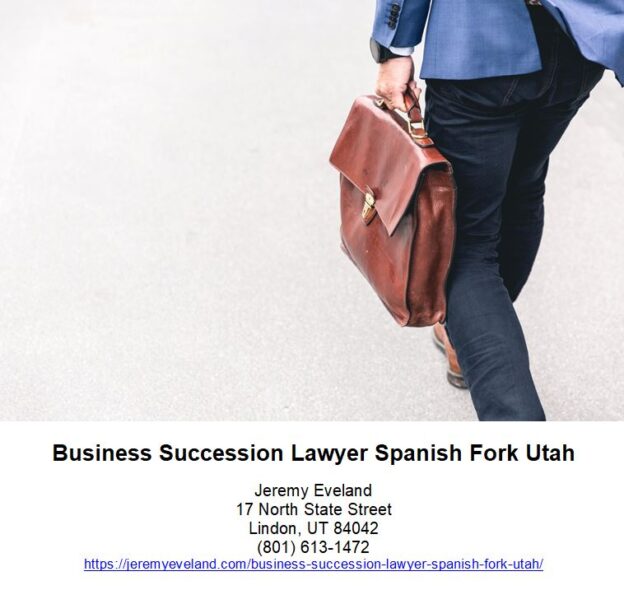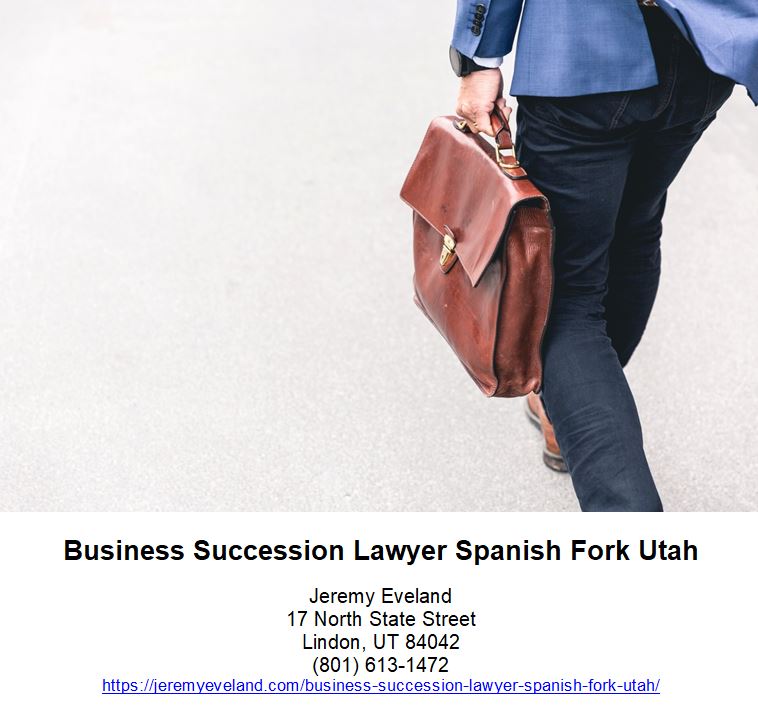If you’ve ever been involved in a pedestrian or car accident, you know how overwhelming the aftermath can be. From dealing with injuries to navigating insurance claims, it can feel like a whirlwind of confusion. That’s where the expertise of a lawyer comes in. In this article, we will explore how to effectively communicate with your lawyer and client during the deposition process, ensuring that your side of the story is heard and that you receive the legal representation you deserve. Whether you are the victim or the party at fault, understanding the importance of clear and concise communication during this crucial time will greatly impact the outcome of your case. So let’s dive in and discover the key steps to effectively talk with your lawyer and client during the deposition process in pedestrian and car accident cases.

Understanding the Deposition Process
What is a deposition?
A deposition is a legal procedure in which a witness or party involved in a case is questioned under oath by the opposing counsel. It is an opportunity for both sides to gather information and gather evidence before the trial. The testimony given during a deposition is recorded and can be used as evidence during the trial.
Why are depositions important in pedestrian and car accident cases?
Depositions play a crucial role in pedestrian and car accident cases as they allow both parties to gather important information and evidence. They provide an opportunity for the parties involved to obtain a detailed account of the incident, explore any available evidence or witness statements, and understand the injuries and medical treatment involved. Depositions help attorneys assess liability, determine potential damages and compensation, and develop a legal strategy based on the information obtained.
Who participates in a deposition?
In a deposition related to a pedestrian or car accident case, there are several individuals who may participate. The key participants typically include the witness or party being deposed, their attorney, and the opposing counsel. Sometimes, a court reporter is present to transcribe the testimony.
Where do depositions take place?
Depositions can take place in various settings. They are often conducted in a lawyer’s office, a conference room, or a neutral location agreed upon by both parties. The location is typically chosen to ensure a comfortable and appropriate environment for all participants.
Preparing for a Deposition
Gathering all relevant documents and evidence
Before a deposition, it is essential to collect and organize all relevant documents and evidence related to the pedestrian or car accident case. This may include police reports, medical records and bills, photographs of the accident scene, insurance information, witness statements, and any other documentation that could support your case. Having these materials readily available will help your attorney build a strong defense and effectively represent you during the deposition.
Meeting with your lawyer to discuss the case
It is crucial to meet with your lawyer prior to the deposition to discuss the case in detail. This meeting allows you to share all the information you have and ask any questions you may have. Your lawyer will have a comprehensive understanding of the legal procedures involved and can provide guidance throughout the deposition process. They will also review the potential deposition questions with you to ensure you are well-prepared.
Reviewing potential deposition questions
To prepare for the deposition, your lawyer will go through a list of potential questions that the opposing counsel may ask. They will help you understand the purpose behind these questions and how to respond appropriately. This preparation will help you feel more confident and comfortable during the actual deposition.
Understanding your rights and obligations
Your lawyer will also explain your rights and obligations during the deposition. It is crucial to understand what you can and cannot say, as well as when and how to invoke certain legal protections. Being aware of your rights and obligations will help you navigate the deposition process effectively and protect your interests.
Communicating with Your Lawyer
Maintaining open and honest communication
Effective communication with your lawyer is key throughout the deposition process. It is important to be open and honest with them about all the details of the accident and any concerns or questions you may have. By maintaining a transparent and trusting relationship, you can work together to build a strong case and ensure that your interests are protected.
Providing accurate and detailed information
When communicating with your lawyer, make sure to provide accurate and detailed information regarding the accident. Every little detail can be crucial in building a strong defense. Therefore, it is important to recall and share all the facts and events leading up to the accident, as well as any relevant information about the scene, the vehicles involved, and the parties present.
Sharing concerns and questions
If you have any concerns or questions about the deposition process, it is essential to share them with your lawyer. They are there to guide you and address any uncertainties you may have. By sharing your concerns or questions, your lawyer can provide the necessary information and alleviate any anxieties you may be experiencing.
Following your lawyer’s advice
Your lawyer has extensive knowledge and experience in handling deposition proceedings. It is vital to follow their advice and guidance throughout the process. They will provide you with strategies and techniques to handle difficult or unexpected questions from the opposing counsel. By trusting and following your lawyer’s advice, you can ensure that your deposition goes smoothly and increases the chances of a favorable outcome.
Discussing the Incident with your Lawyer
Providing a detailed account of the accident
When discussing the incident with your lawyer, it is important to provide a detailed and accurate account of what happened. Start from the moment leading up to the accident, describing the actions and behaviors of all parties involved. Include information about traffic conditions, any signs or signals, and any factors that might have contributed to the accident. The more thorough your account, the better your lawyer can analyze the situation and build a strong defense on your behalf.
Sharing any available evidence or witness statements
If you have any evidence or witness statements related to the accident, it is essential to share them with your lawyer. This evidence could include photographs, videos, or any documentation that supports your side of the story. Witness statements can also play a crucial role in corroborating your account of the incident. Your lawyer will carefully review this evidence and determine how best to utilize it during the deposition.
Answering your lawyer’s questions truthfully
During your discussions with your lawyer, they will likely ask you questions to gather further information and clarify any uncertainties. It is imperative to answer these questions truthfully and to the best of your ability. Your lawyer needs accurate information to effectively represent you during the deposition and ensure that all aspects of the case are properly addressed.
Discussing your injuries and medical treatment
If you suffered injuries as a result of the accident, it is crucial to discuss them with your lawyer. Provide details about the nature and extent of your injuries, as well as the medical treatment you have received or are currently undergoing. This information is vital in determining the damages and compensation that may be sought during the case. Your lawyer will guide you on how to present this information in a clear and concise manner during the deposition.

Understanding the Lawyer’s Role
Explaining legal procedures and terminology
One of the primary roles of your lawyer is to explain any legal procedures and terminology involved in your case. They will ensure that you understand the steps of the deposition process and the significance of the questions being asked. By providing this guidance, your lawyer helps you navigate the complexities of the legal system and ensures that you are fully informed and prepared for the deposition.
Assessing liability in the pedestrian and car accident
Your lawyer will carefully analyze the circumstances surrounding the accident to assess liability. They will review the evidence, witness statements, and any applicable laws to establish who is responsible for the accident. This assessment allows your lawyer to build a strong defense and argue your case effectively during the deposition.
Determining potential damages and compensation
Another critical role of your lawyer is to determine the potential damages and compensation that may be sought as a result of the pedestrian or car accident. They will evaluate the extent of your injuries, the impact on your daily life, and any future medical needs or expenses. By understanding these factors, your lawyer can present a comprehensive case during the deposition, seeking fair compensation for your losses.
Developing a legal strategy based on the deposition
Based on the information gathered during the deposition, your lawyer will develop a legal strategy to achieve the best possible outcome for your case. They will analyze the opposing counsel’s questions, your responses, and any evidence presented. With this information, your lawyer can identify any weaknesses in the opposing side’s arguments and craft a strong defense to protect your interests.
Preparing for Questions from the Opposing Counsel
Anticipating common interrogation techniques
Opposing counsel may use various techniques to elicit certain responses or undermine your credibility during the deposition. It is crucial to be prepared and anticipate these techniques. Your lawyer will help you understand common interrogation techniques, such as leading questions, hypothetical scenarios, or repetitive questioning. By being aware of these techniques, you can respond confidently and effectively during the deposition.
Practicing how to remain composed and calm
Facing questioning from the opposing counsel can be stressful and intimidating. However, it is essential to remain composed and calm throughout the deposition. Your lawyer can help you practice techniques to manage your emotions and stay focused on providing accurate and truthful answers. By remaining composed, you can maintain control of the situation and present yourself as a credible and reliable witness.
Understanding how to answer difficult questions
During the deposition, you may encounter difficult or challenging questions from the opposing counsel. Your lawyer will guide you on how to respond to these questions. They will help you understand the purpose behind the questions, how to address any potential pitfalls, and how to present your answers in a clear and concise manner. By understanding how to answer difficult questions, you can effectively navigate the deposition process.
Consulting with your lawyer for guidance
If you are unsure about how to respond to a particular question or need guidance during the deposition, do not hesitate to consult with your lawyer. They are there to support and assist you throughout the process. By seeking their guidance, you can ensure that your responses align with your legal strategy and protect your best interests.
Maintaining Professionalism during the Deposition
Dressing appropriately and arriving on time
Maintaining professionalism during the deposition starts with your appearance. Dressing appropriately, as you would for a formal business meeting, demonstrates respect for the legal process. Arriving on time is also crucial to show your commitment and willingness to participate fully. By presenting yourself professionally, you set a positive tone for the deposition.
Listening carefully to the questions before answering
Active listening is an essential aspect of maintaining professionalism during the deposition. Listen carefully to each question asked by the opposing counsel. Taking the time to fully understand the question before responding ensures that you provide accurate and relevant answers. By actively engaging in the deposition process, you demonstrate respect for the legal proceedings and enhance your credibility.
Avoiding interrupting or arguing with opposing counsel
While the opposing counsel may ask challenging or confrontational questions, it is important to avoid interrupting or arguing with them. Stay focused and respond calmly and professionally. Engaging in arguments or interruptions can derail the deposition and undermine your credibility. Instead, rely on your lawyer to address any inappropriate or misleading questions on your behalf.
Remaining composed and respectful throughout
Throughout the deposition, it is crucial to remain composed and respectful towards all participants. Keep in mind that your behavior and demeanor are being observed and may influence the outcome of the case. Even if you find certain questions or situations challenging, maintaining a respectful and composed attitude will reinforce your credibility and professionalism.
Knowing Your Rights and Protections
Understanding your Fifth Amendment rights
As a witness or party involved in a deposition, you have certain rights, including your Fifth Amendment rights against self-incrimination. If answering a question may potentially implicate you in a crime, you can invoke your Fifth Amendment rights and refuse to answer. However, it is important to consult with your lawyer before invoking this right to ensure it is exercised properly and within the boundaries of the law.
Knowing when to object to certain questions
During the deposition, you or your lawyer may object to certain questions posed by the opposing counsel. Objections may be raised if the question is irrelevant, calls for privileged information, or if it is outside the scope of the deposition. Your lawyer will guide you on when and how to object to protect your rights. Understanding when to object is crucial in maintaining the integrity of the deposition process.
Seeking guidance from your lawyer when unsure
If you are unsure about how to respond to a question or if you have any doubts regarding your rights and protections, it is essential to seek guidance from your lawyer. They are the best source of expert advice and can provide clarity on any legal issues that may arise during the deposition. By relying on their expertise, you can navigate the deposition with confidence and protect your interests.
Protecting attorney-client privileged information
During the deposition, it is important to be mindful of attorney-client privileged information. Privileged information is confidential and protected from disclosure. If any questions are asked that touch upon privileged information, notify your lawyer immediately. They will guide you on how to handle such situations to maintain the confidentiality of the privileged communication.

Handling Difficult and Personal Questions
Understanding the limits of questioning
During the deposition, there are limits to the questions that can be asked. Questions should be relevant and directly related to the case. If you feel that a question goes beyond the permissible limits, you can consult with your lawyer to address the issue. Understanding the limits of questioning helps you navigate the deposition effectively and protect your rights.
Maintaining your composure when confronted
Occasionally, the opposing counsel may ask personal or confrontational questions during the deposition. It is important to maintain your composure and not let these questions provoke an emotional response. Your lawyer will help you prepare for such situations and guide you on how to respond appropriately, ensuring that the focus remains on the facts of the case.
Politely declining to answer inappropriate questions
If you feel that a question is inappropriate or invasive, you can politely decline to answer. Your lawyer can assist you in determining when it is appropriate to decline and provide guidance on how to handle such situations. It is essential to remain respectful and composed when declining to answer, as your behavior during the deposition is closely observed.
Requesting breaks when necessary for emotional support
Depositions can be emotionally challenging, particularly when discussing traumatic events such as pedestrian or car accidents. If you feel overwhelmed or need emotional support during the deposition, it is acceptable to request breaks. Taking breaks allows you to collect yourself, seek comfort, or consult with your lawyer if needed. Prioritizing your emotional well-being is essential throughout the deposition process.
Frequently Asked Questions
Can I refuse to answer certain questions during a deposition?
Yes, you have the right to refuse to answer certain questions during a deposition. If a question violates your rights, is irrelevant, or calls for privileged information, you may decline to answer. However, it is important to consult with your lawyer before doing so to ensure you are exercising your rights appropriately.
Will the opposing counsel try to trick me during the deposition?
While the opposing counsel may use various techniques to elicit certain responses, it is important to remain composed and respond truthfully. Your lawyer will prepare you for potential tactics and guide you on how to handle difficult questions. By being prepared, you can navigate the deposition process effectively and protect your interests.
What should I wear to a deposition?
When attending a deposition, it is important to dress in professional attire. Choose conservative and respectful clothing, similar to what you would wear to a formal business meeting. Your appearance sets the tone for the deposition and demonstrates your respect for the legal process.
How long does a deposition usually last?
The duration of a deposition can vary depending on the complexity of the case and the number of questions asked. Depositions typically range from a few hours to several days. Your lawyer will provide you with an estimate of how long your specific deposition is expected to last.
Can I request a copy of the deposition transcript?
Yes, you can request a copy of the deposition transcript. Transcripts are typically provided by the court reporter who recorded the proceedings. Your lawyer can assist you in obtaining a copy for review and reference.

